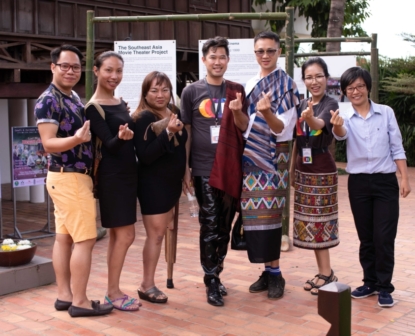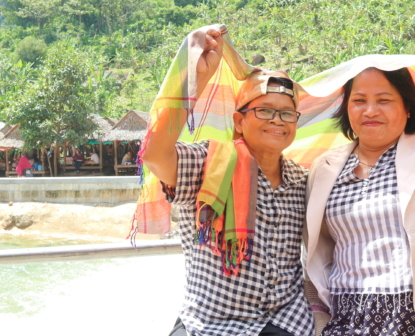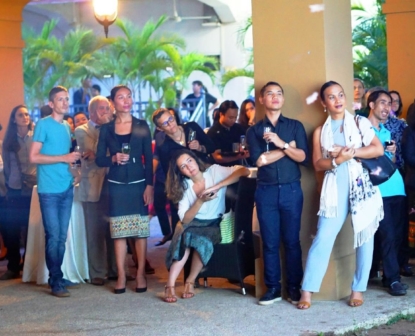Project
Innovative Communication Methods: its use and learning
-
Amount Funded
142,452 EUROProject Duration
01 Feb 2017 - 31 Jan 2018 -
-
Lead organisation
-
MCNV network was founded in 1968 and was first active in Vietnam. MCNV has offices in Vietnam, Lao PDR and the Netherlands, with Vietnamese and Laotian staff members and Dutch experts. The main goal of MNCV is to assist marginalised people in South East Asian countries in transition, to have more equitable access to factors that influence health, such as primary health care, employment, education and food security. MCNV aims at programmes in which health and well-being are addressed in combination with development issues such as clean water and sanitation, livelihood, access to credit and maintaining or improving the environment. Parallel to programme implementation, MCNV documents and disseminates knowledge about approaches that can be adapted and adopted by individuals, groups and institutions that lie beyond the boundaries of the programmes. To date, MCNV has strengthened over 300 community based organisations in Vietnam and Laos. These organisations are centred around disability, age, livelihood, entrepreneurship and HiV/AIDS.
-
Organisation
MCNV network was founded in 1968 and was first active in Vietnam. MCNV has offices in Vietnam, Lao PDR and the Netherlands, with Vietnamese and Laotian staff members and Dutch experts. The main goal of MNCV is to assist marginalised people in South East Asian countries in transition, to have more equitable access to factors that influence health, such as primary health care, employment, education and food security. MCNV aims at programmes in which health and well-being are addressed in combination with development issues such as clean water and sanitation, livelihood, access to credit and maintaining or improving the environment. Parallel to programme implementation, MCNV documents and disseminates knowledge about approaches that can be adapted and adopted by individuals, groups and institutions that lie beyond the boundaries of the programmes. To date, MCNV has strengthened over 300 community based organisations in Vietnam and Laos. These organisations are centred around disability, age, livelihood, entrepreneurship and HiV/AIDS.
-
Project
This project will carry out action research that aims to explore the potential of using Innovative Communication Methods (ICM) such as songs, dance, theatre and participatory video for peer-learning behaviour change and advocacy on Sexual and Reproductive Health and Rights (SRHR) for young groups in Lao PDR. In different settings, the participants will share and speak out. Therefore, one of the main learning questions this project intends HIVanswer to, is how ICM contributes to the empowerment of different vulnerable young individuals and their interest groups in the field of SRHR in Lao PDR, and if it does not, why not?
This project is inspired by a successful use of ICM in Vietnam in a wide range of programmes for ethnic minority groups that have overcome their shyness and built their self-esteem. As a result, groups have become more vocal in sharing and learning locally but also engaging with local policymakers and making their voices heard.
-
Learning
- How does the use of Innovative Communication Methods contribute to the empowerment of different vulnerable young individuals and their interest groups in the field of SRHR, and if it does not contribute to empowerment in this field, why not?
- How does the use of ICM facilitate learning intra and inter-organisationally, and if it does not facilitate learning, how come?
- How does ICM help to bring out the voice of disadvantaged people to policy makers and to the places and people where decisions are taken and if the method does not help, why not?
- How does the ICM connect decision makers and disadvantaged youth groups, and if it does not connect them, why not?
- How does the use of ICM influence behaviour change in SRHR of target groups themselves, policymakers and decision makers?
-
-
This project will carry out action research that aims to explore the potential of using Innovative Communication Methods (ICM) such as songs, dance, theatre and participatory video for peer-learning behaviour change and advocacy on Sexual and Reproductive Health and Rights (SRHR) for young groups in Lao PDR. In different settings, the participants will share and speak out. Therefore, one of the main learning questions this project intends HIVanswer to, is how ICM contributes to the empowerment of different vulnerable young individuals and their interest groups in the field of SRHR in Lao PDR, and if it does not, why not?
This project is inspired by a successful use of ICM in Vietnam in a wide range of programmes for ethnic minority groups that have overcome their shyness and built their self-esteem. As a result, groups have become more vocal in sharing and learning locally but also engaging with local policymakers and making their voices heard.
-
- How does the use of Innovative Communication Methods contribute to the empowerment of different vulnerable young individuals and their interest groups in the field of SRHR, and if it does not contribute to empowerment in this field, why not?
- How does the use of ICM facilitate learning intra and inter-organisationally, and if it does not facilitate learning, how come?
- How does ICM help to bring out the voice of disadvantaged people to policy makers and to the places and people where decisions are taken and if the method does not help, why not?
- How does the ICM connect decision makers and disadvantaged youth groups, and if it does not connect them, why not?
- How does the use of ICM influence behaviour change in SRHR of target groups themselves, policymakers and decision makers?
-
News







